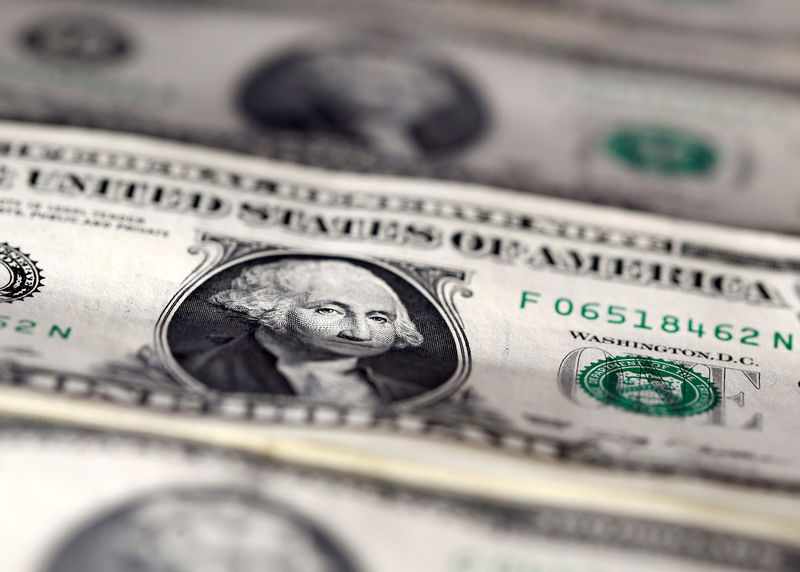By Hari Kishan
BENGALURU (Reuters) - The dollar's persistent and confounding strength will continue well into next year, and even if a partial U.S.-China trade deal is signed it will at most knock the currency by 1-2% in the immediate aftermath, a Reuters poll found.
Renewed hopes the world's two largest economies were taking steps towards ending their 16-month trade war have pushed global stocks close to record peaks and Wall Street to all-time highs.
That risk-on attitude has led the U.S. dollar index - which measures the greenback's value against other major currencies (DXY) - to post its first monthly loss since June. But it is still up nearly 2% year-to-date.
Currency speculators have bought into the optimism and pared their bullish bets on the greenback, taking the total value of net dollar long positions to the lowest in over two months.
But that sell-the-dollar trend was not expected to continue, according to analysts in the Oct. 31-Nov. 6 Reuters poll.
"We are fearful this optimism about trade won't last. I think you've got to ask the question about phase two of the trade deal and how difficult it really will be to try and get through some of the more controversial parts of the disagreements," said Jane Foley, senior currency strategist at Rabobank.
"We do anticipate we will have more risk aversion and we could have another round of movement out of emerging markets and back into the dollar, say in the 3-6 month horizon."
Nearly two-thirds of 56 analysts who answered an additional question said the dollar's dominance would run for at least another six months, and a quarter expected the currency to remain strong for more than two years.
That stands in stark contrast to the start of the year when a majority of analysts were confident the dollar rally was over.
Reuters Poll: U.S. dollar's dominance - https://fingfx.thomsonreuters.com/gfx/polling/1/631/627/Dollar%20dominance.png
What has probably helped the world's reserve currency - and continues to do so - is a U.S. economy that has mostly performed better than its peers and given investors good returns from dollar-denominated assets.
"In a low-volatility, low-yield world, investors are almost compelled to hold assets they get paid to hold – and the dollar is still the highest-yielding currency in the developed world," said Adam Cole, chief currency strategist at RBC Capital Markets.
"That's what I think has prevented the dollar selling off over the last two years in the way the consensus had expected."
Over 40% of 63 analysts said the dollar index would weaken around 1-2% in the immediate aftermath, if a "phase one" trade agreement is signed by the United States and China. Only five respondents predicted a more than 2% loss.
Fifteen analysts said there would be no material change to dollar exchange rates, while 16 said the currency would strengthen 1-2%. Just one respondent expected the greenback to gain over 2%.
The dollar's better performance has led to investors piling on even more bets in favor of the greenback, making it one of the most overcrowded trades this year.
Nearly two-thirds, or 40 of 62 analysts who answered another question said that has pushed the dollar to be overvalued.
When asked by how much, 17 respondents said it was up to 5% overvalued, and another 17 said 5-10%. The remaining six said over 10%.
But dollar-denominated assets were still favoured compared to European ones, which have been underperforming.
While the year-ahead euro/dollar forecasts have gone up a sliver to $1.14 from $1.13 predicted last month, they are considerably lower than predictions made at the beginning of the year.
In January, the euro was forecast to trade around $1.20 by end-2019, over 8% higher from where it is currently trading and a level not in any analyst forecast for the next 6 months.
"We are agnostic about the prospects for an immediate or aggressive cyclical turn higher in EUR/USD, as we are not persuaded that the near-term positive factors argued by some are sufficient," noted analysts at JP Morgan.
